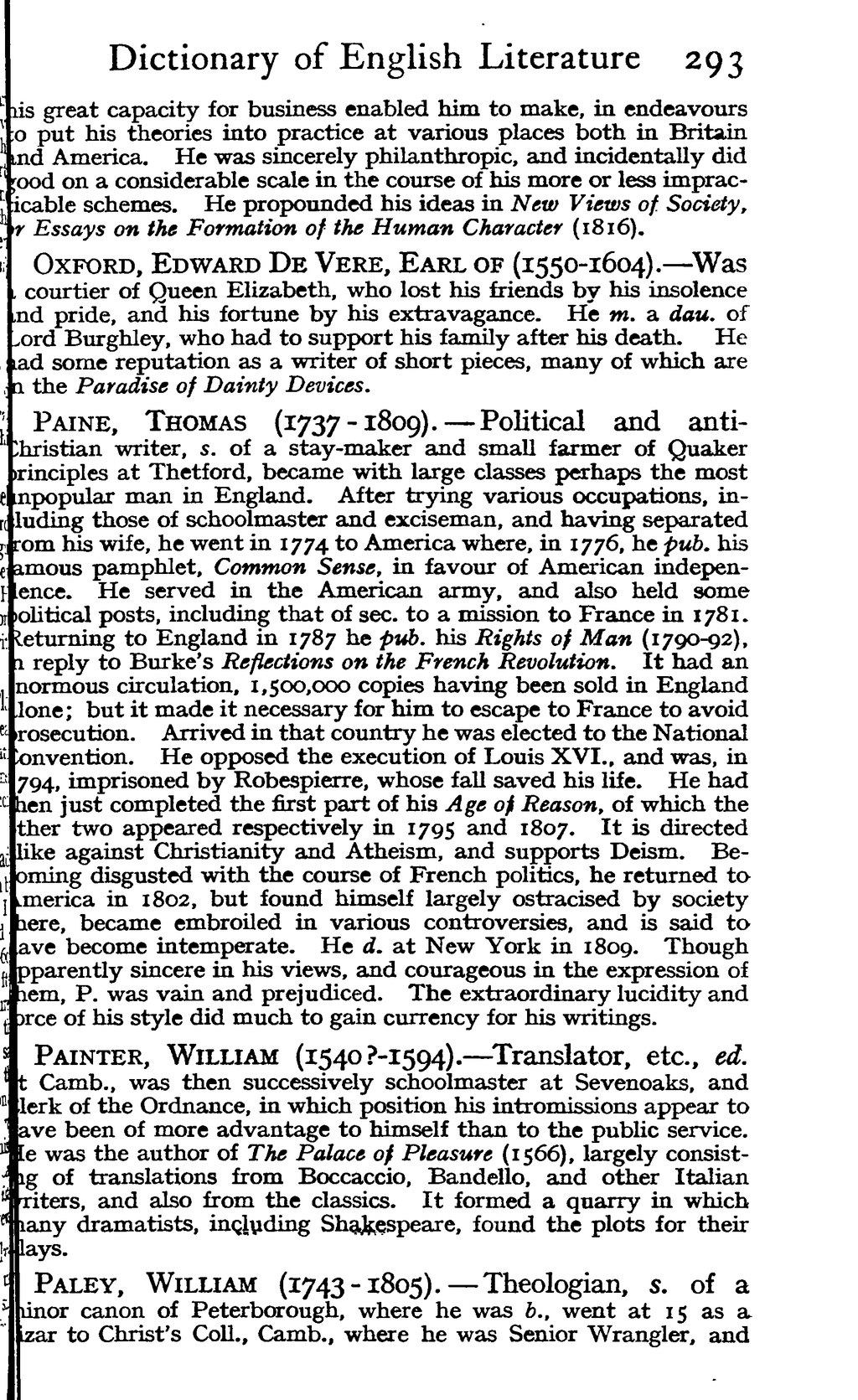Dictionary of English Literature 293
great capacity for business enabled him to make, in endeavours to put his theories into practice at various places both hi Britain America. He was sincerely philanthropic, and incidentally did good on a considerable scale in the course of his more or less imprac- ible schemes. He propounded his ideas in New Views of. Society, Essays on the Formation of the Human Character (1816).
OXFORD, EDWARD DE VERE, EARL OF (1550-1604). Was
courtier of Queen Elizabeth, who lost his friends by his insolence
id pride, and his fortune by his extravagance. He m. a dau. of
-,ord Burghley, who had to support his family after his death. He
d some reputation as a writer of short pieces, many of which are
the Paradise of Dainty Devices.
PAINE, THOMAS (1737-1809). Political and anti-
hristian writer, s. of a stay-maker and small farmer of Quaker nciples at Thetford, became with large classes perhaps the most e^npopular man in England. After trying various occupations, in- .uding those of schoolmaster and exciseman, and having separated om his wife, he went in 1774 to America where, in 1776, he pub. his mous pamphlet, Common Sense, in favour of American indepen- .ence. He served in the American army, and also held some itical posts, including that of sec. to a mission to France in 1781. eturning to England in 1787 he pub. his Rights of Man (1790-92), reply to Burke's Reflections on the French Revolution. It had an normous circulation, 1,500,000 copies having been sold in England one; but it made it necessary for him to escape to France to avoid osecution. Arrived in that country he was elected to the National vention. He opposed the execution of Louis XVI., and was, in 794, imprisoned by Robespierre, whose fall saved his life. He had .en just completed the first part of his Age of Reason, of which the ther two appeared respectively hi 1795 and 1807. It is directed ike against Christianity and Atheism, and supports Deism. Be- ming disgusted with the course of French politics, he returned to erica in 1802, but found himself largely ostracised by society .ere, became embroiled hi various controversies, and is said to ,ve become intemperate. He d. at New York in 1809. Though iparently sincere hi his views, and courageous hi the expression of P. was vain and prejudiced. The extraordinary lucidity and rce of his style did much to gain currency for his writings.
PAINTER, WILLIAM (i54O?-i594). Translator, etc., ed.
Camb., was then successively schoolmaster at Sevenoaks, and lerk of the Ordnance, in which position his intromissions appear to ave been of more advantage to himself than to the public service. [e was the author of The Palace of Pleasure (1566), largely consist - of translations from Boccaccio, Bandello, and other Italian riters, and also from the classics. It formed a quarry in which ly dramatists, including Shakespeare, found the plots for their s.
PALEY, WILLIAM (1743-1805). Theologian, s. of a
inor canon of Peterborough, where he was b., went at 15 as a to Christ's Coll., Camb., where he was Senior Wrangler, and
